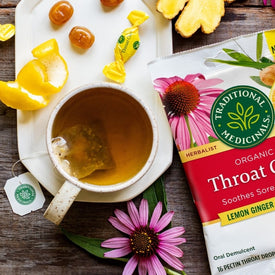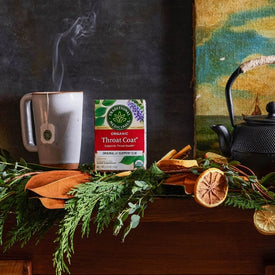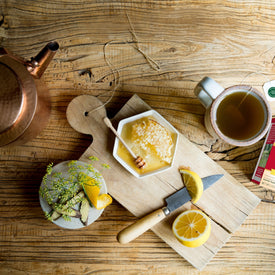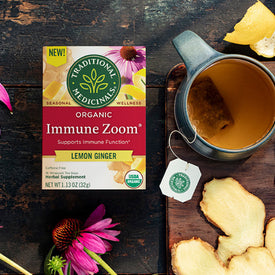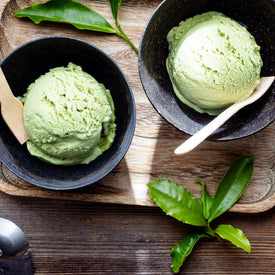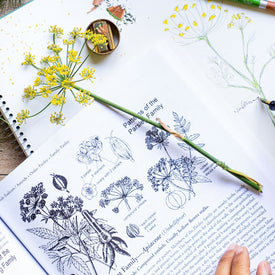At Traditional Medicinals, sustainable sourcing serves as the heart of our ethos. Not only do we seek out organically farmed or wild-collected herbs, but we also consider the long-term impact of doing business in the communities we source from. This is particularly significant in the communities where we source wild schisandra berries—a somewhat magical superfruit that shares its ecosystem with the endangered panda bear. Of the 22 Asian species of schisandra on the planet, we use extracts of both “northern” (Schisandra chinensis) and “southern” (Schisandra sphenanthera) berries for our EveryDay Detox® tea for healthy liver function*. As more consumers gravitate to our teas for their health benefits, our commitment to securing sustainable sources becomes even more vital.


Health Benefits of the Schisandra Berry
Wild-harvested in both China and Russia, the schisandra berry is called wu wei zi, or “five flavor fruit,” the only fruit to boast all five tastes according to TCM theory—bitter, pungent, salty, sour, and sweet. Each taste corresponds to a different natural element, organ system and therapeutic action. In traditional terms, this superfruit is said to replenish the body’s vital energy (also known as ch’i or qi), and modern research supports its liver protective and adaptogen effects.

Harvesting Schisandra Responsibly
Harvesting this prized berry, however, requires a detailed understanding of the larger ecosystem. Schisandra vines scale tall trees in some of the world’s most spectacular biodiversity hotspots, sharing habitat with two endangered species: the giant panda bear of southwest China and the Siberian tiger of northeast China and the Russian Far East. Schisandra vines wind their way around host trees, spiraling upwards in search of the sun. Their red berries grow in clusters much like grapevines, hanging from tree limbs like festive ornaments. Fast, conventional harvesting practices pull the entire vine down to the ground, indiscriminately stripping off all of the berries. In contrast, sustainable berry harvesters take the time to climb the host tree, using grape shears to carefully snip off clusters from only the lower two-thirds of the vine and leaving the top third for birds and other animals to eat—thereby facilitating seed dispersal and plant regeneration. While it takes substantially more time and expense to harvest sustainably, we wouldn’t have it any other way. Using environmentally responsible practices not only protects the biodiversity of the ecosystems we source from, but it ensures that schisandra will remain available for future generations to enjoy. Since 2008, we have supported a TCM cooperative with members from 23 villages to promote the sustainable harvesting of wild schisandra berries and the protection of critical panda habitat.
Southern schisandra vines grow wild in forests of southwest China, where a 2014 census estimated 1,864 pandas remain.

Doing Our Part to Protect the Giant Panda Bear
Southern schisandra vines grow wild in forests of southwest China, where a 2014 census estimated 1,864 pandas remain. The highest density of panda bears lives specifically in Pingwu County, Sichuan, where we work with the Pingwu Shuijing Traditional Chinese Medicine Cooperative to source our sustainably wild-harvested and panda-friendly schisandra berries. In 2011, we were proud to have been invited to collaborate with Chengdu University of TCM, TRAFFIC, and World Wide Fund for Nature (WWF China) to help develop draft “Standards for Giant Panda-Friendly Products”—a gesture that recognizes our positive impact on the community.
Promoting Biodiversity Conservation and Animal-Friendly Products
Protection of the fragmented giant panda habitats plays a critical role for the long-term survival of the species, but it requires the conservation of the entire ecosystem. To accomplish this means empowering and rewarding the local Baima, Han, Qiang, Tibetan and Yi people who live in and around these habitats to serve as stewards and resource managers for sustainable harvesting, as wild-harvested forest plants are their primary source of income. If we hope that local inhabitants carry out the important work of managing, monitoring and caretaking the last remaining habitats for the earth’s large animals and this invaluable plant, we need to support the economic viability of their communities with fair compensation. By choosing responsible practices and ethics, we strive to offer our customers a superior product while also giving back to the ecosystems we source from—a detailed approach that helps us see the forest for the trees.


